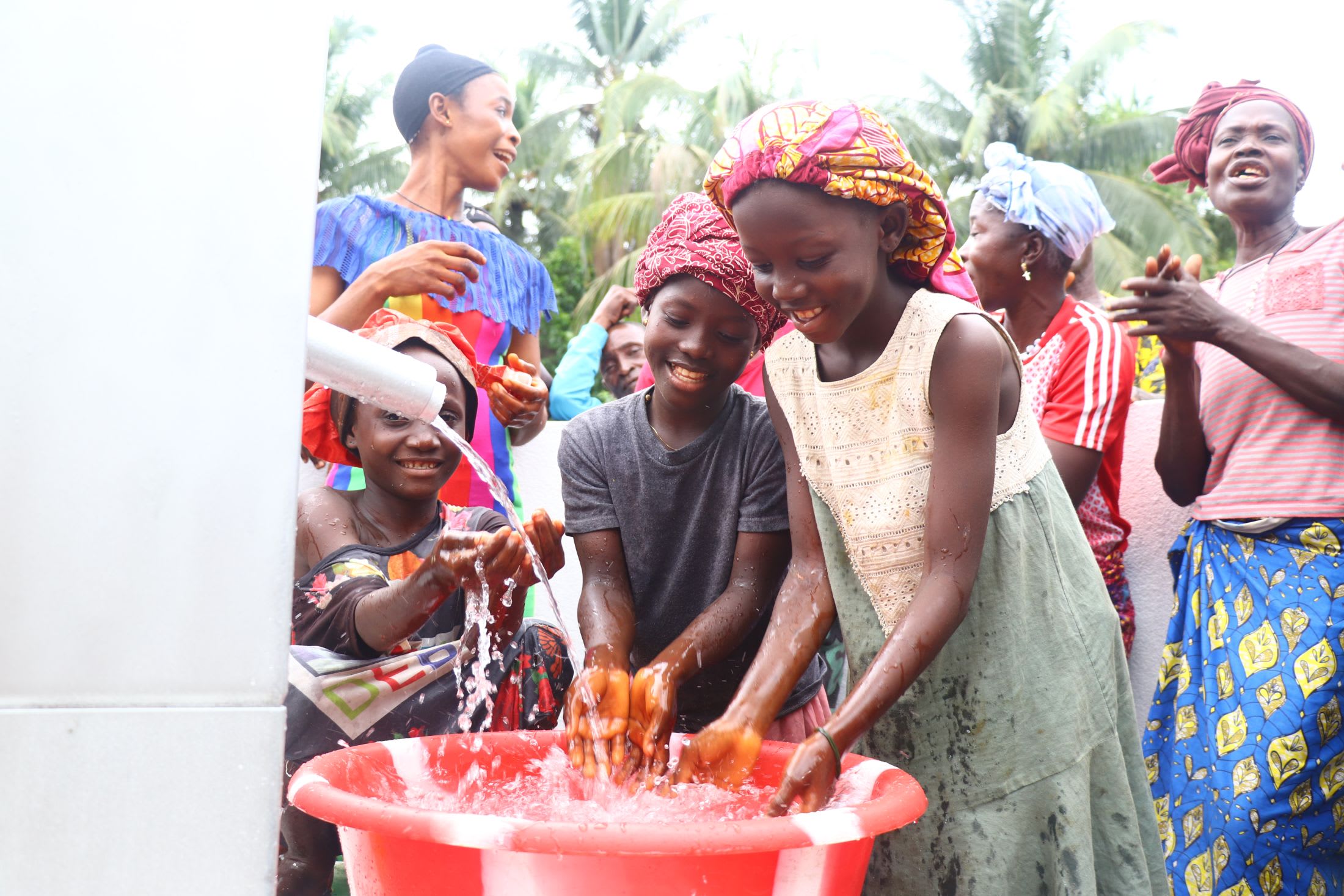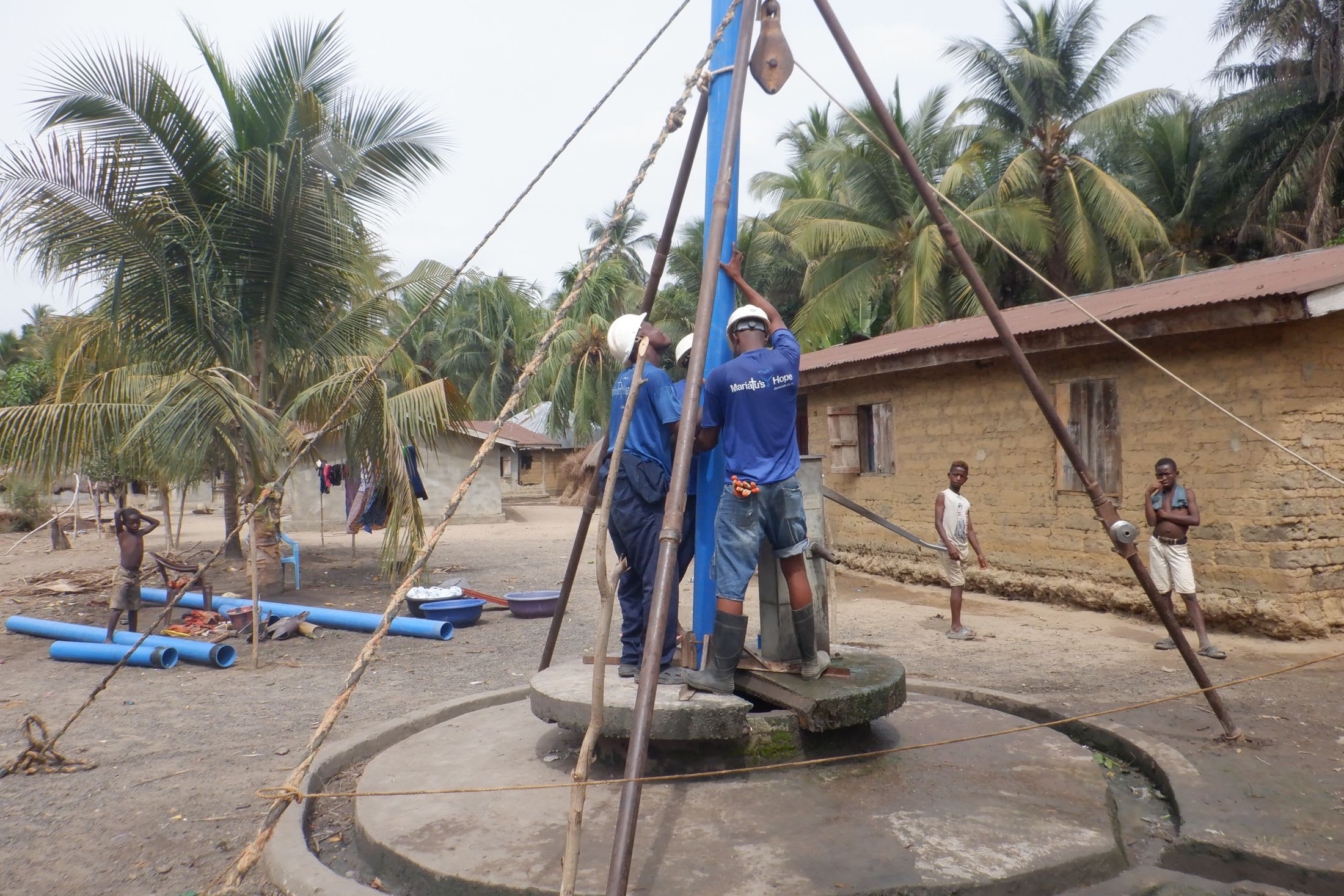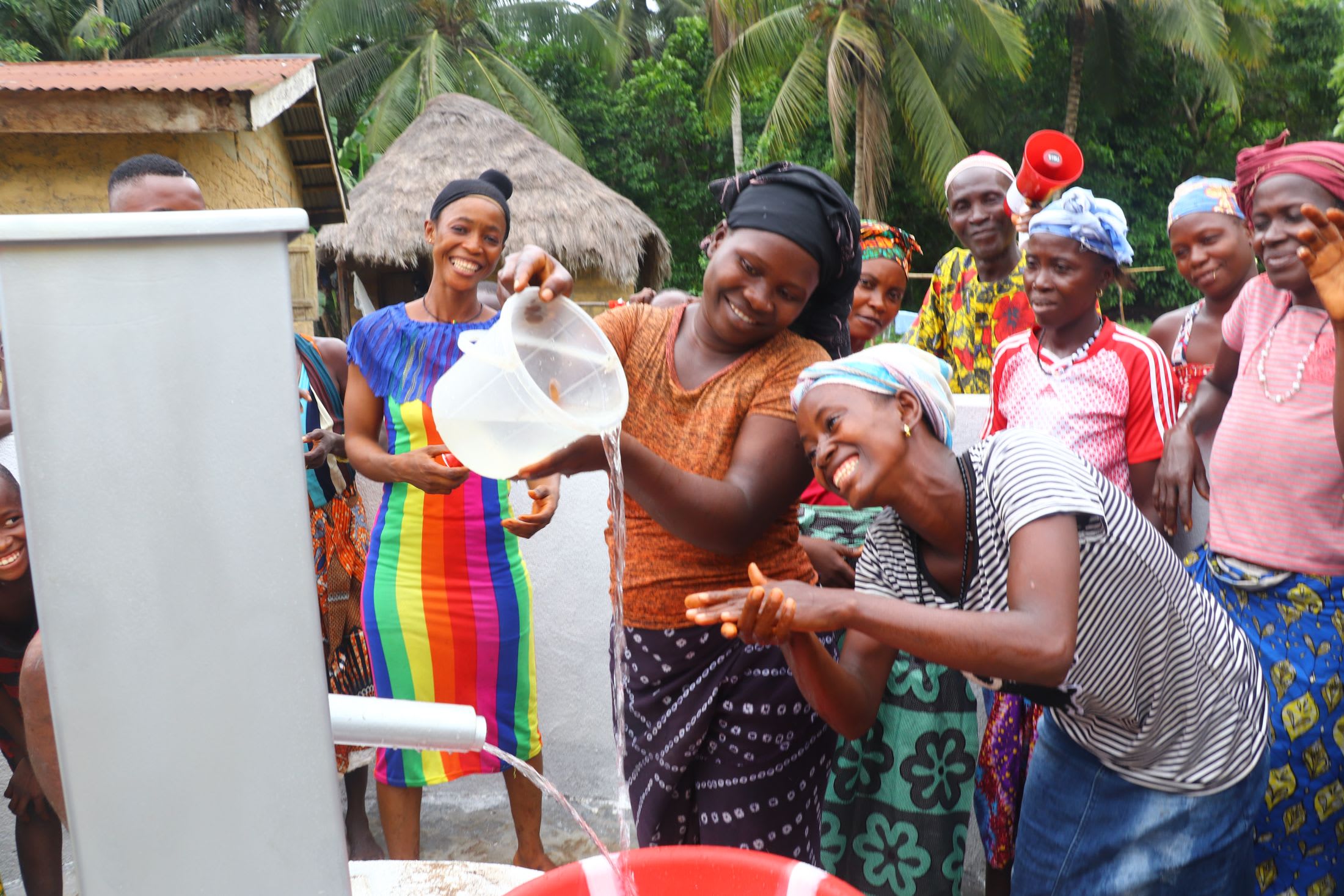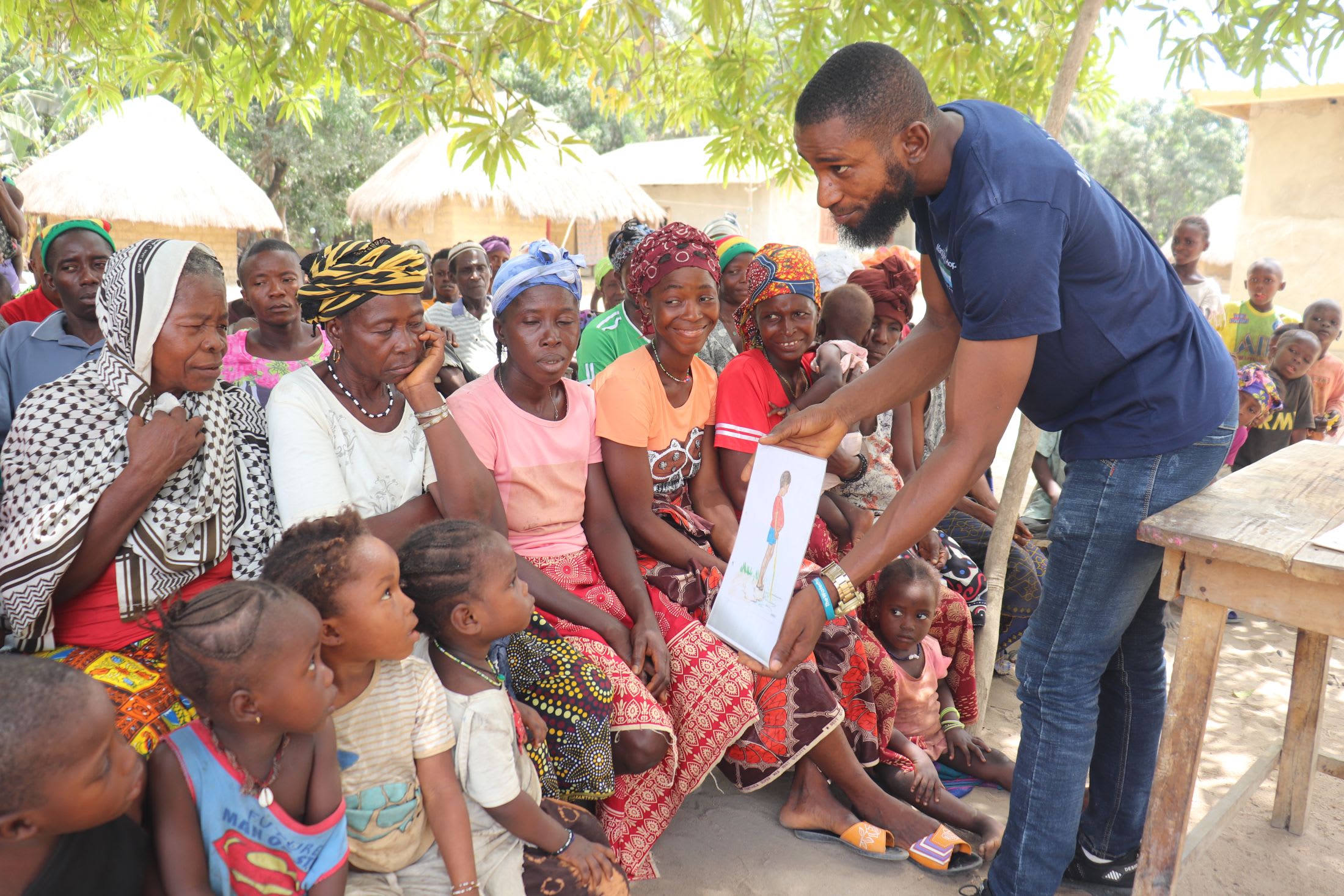The 236 people of Mabalama struggle to access sufficient water to meet their daily needs. With a protected dug well often broken down or running dry, they are forced to travel to a distant swamp to collect water that is questionable to consume.
"I am facing a lot of water challenges in the community. In the morning, when I wake up before going to school, the first thing I [do is] go to the pump to fetch water. When the main pump gets dry or breaks down, I go to the swamp well to fetch water. Most times, I am late for school because the distance I cover to the swamp well is far. I find it difficult to fetch water in my village," said 14-year-old Alimamy K., seen below at the swamp.

"The demand for water in the community is very high, and every household needs water to carry out their activities. They only have one protected dug well with a hand pump (shown below). The primary source is seasonal. It dries from March to April, and it [has] pump breakdowns frequently. This condition causes the community to face water challenges," said field officer Musa Conteh when describing the water situation in Mabalama.
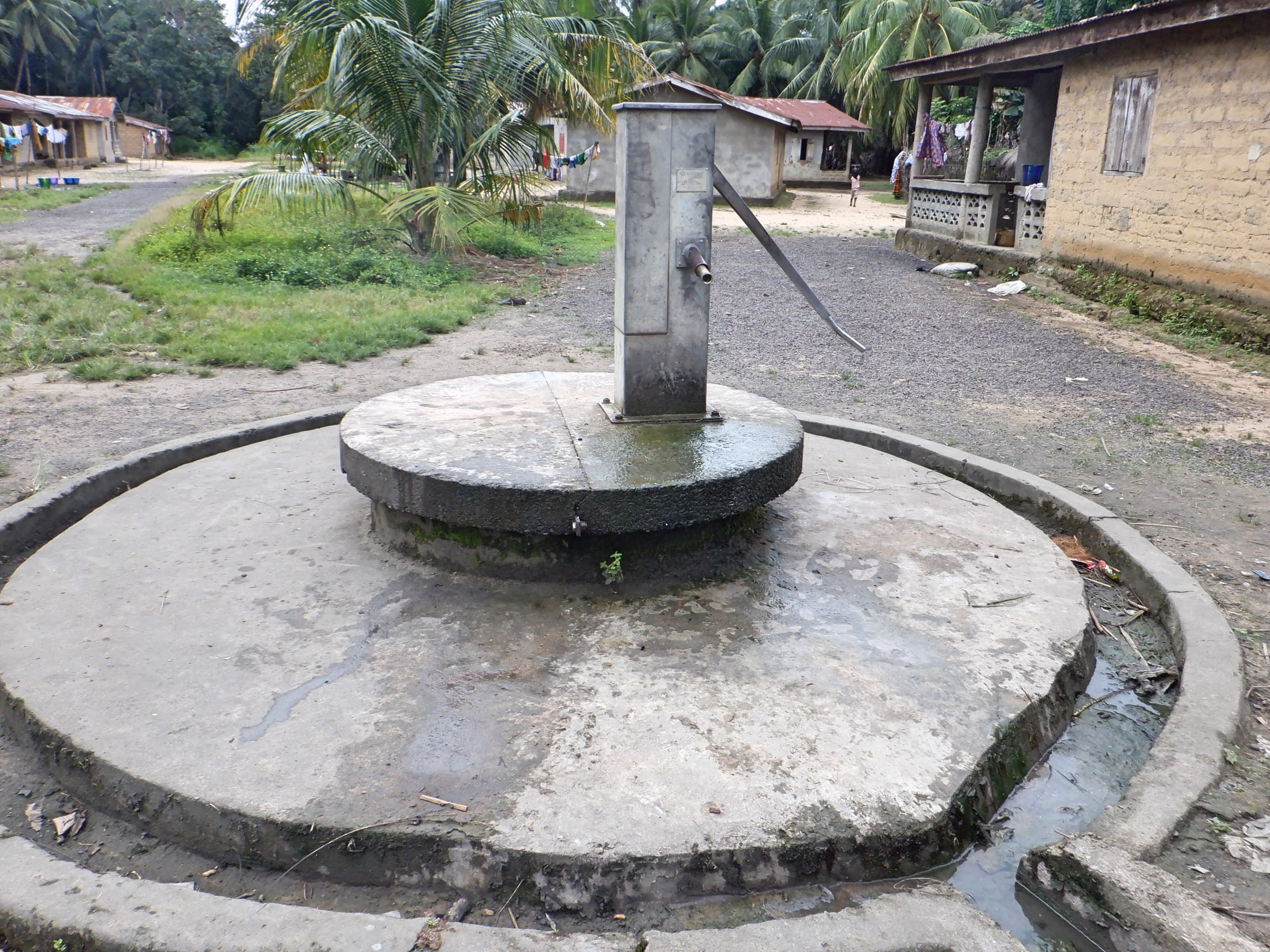
Sometimes, it takes days to repair the pump, making it very difficult to fetch water within the community. Community members are forced to collect water from a faraway stream when that happens. It is time-consuming to get to the source and risky because it is open to contamination. And just like the well, there are certain times of the year when collecting water from here becomes even more difficult because the water dries up, leaving people desperate to find water wherever they can. Sadly, but not surprisingly, people report suffering from waterborne diseases from consuming the swamp's contaminated water.
Water is essential for daily life, yet people waste so much time collecting it that it steals from other parts of their lives. Students are often late to school, losing valuable learning time, and adults miss out on opportunities to increase their livelihoods.

"This water situation affects me greatly in my village. We only have one pump in the village, but this pump sometimes produces a low quantity of water. At that moment, I must go to the stream to fetch water, but it is far from my house. I must walk to get there," said 25-year-old trader Ramatu Conteh, shown above collecting water from the swamp.
"During the dry season, the community youth add depth to the swamp to fetch enough water. But this source [is] open to contamination. I have to fetch the swamp water and then allow it to settle. During the rainy season, water flows all over the swamp, and it contains leeches, so sometimes leeches [stick] on my feet [and] suck blood. This situation pains me the most," said Ramatu.
"Also, I'm a businesswoman. I usually sell different items like baked bread, biscuits, fried fishcakes, etc. I depend on this for my living. I also do garden work in the boli land (swamp land). I plant different crops like pepper, watermelon, and okra. When I harvest these products, I take them to the market to sell to earn money. But the water problem would not allow me to do this on time," concluded Ramatu.
Rehabilitating the community's protected dug well by converting it into a borehole well will help community members access safe and sufficient water year-round. Then, hopefully, they will have the time and energy to commit to learning and improving their daily lives.
The Proposed Solution, Determined Together...
At The Water Project, everyone has a part in conversations and solutions. We operate in transparency, believing it benefits everyone. We expect reliability from one another as well as our water solutions. Everyone involved makes this possible through hard work and dedication.
In a joint discovery process, community members determine their most advantageous water solution alongside our technical experts. Read more specifics about this solution on the What We're Building tab of this project page. Then, community members lend their support by collecting needed construction materials (sometimes for months ahead of time!), providing labor alongside our artisans, sheltering and feeding the builders, and supplying additional resources.
Water Access for Everyone
This water project is one piece in a large puzzle. In Kenya, Sierra Leone, and Uganda, we're working toward complete coverage of reliable, maintained water sources that guarantee public access now and in the future within a 30-minute round trip for each community, household, school, and health center. One day, we hope to report that this has been achieved!
Training on Health, Hygiene & More
With the community's input, we've identified topics where training will increase positive health outcomes at personal, household, and community levels. We'll coordinate with them to find the best training date. Some examples of what we train communities on are:
- Improved hygiene, health, and sanitation habits
- Safe water handling, storage & treatment
- Disease prevention and proper handwashing
- Income-generation
- Community leadership, governance, & election of a water committee
- Operation and maintenance of the water point

 Borehole Well and Hand Pump
Borehole Well and Hand Pump









